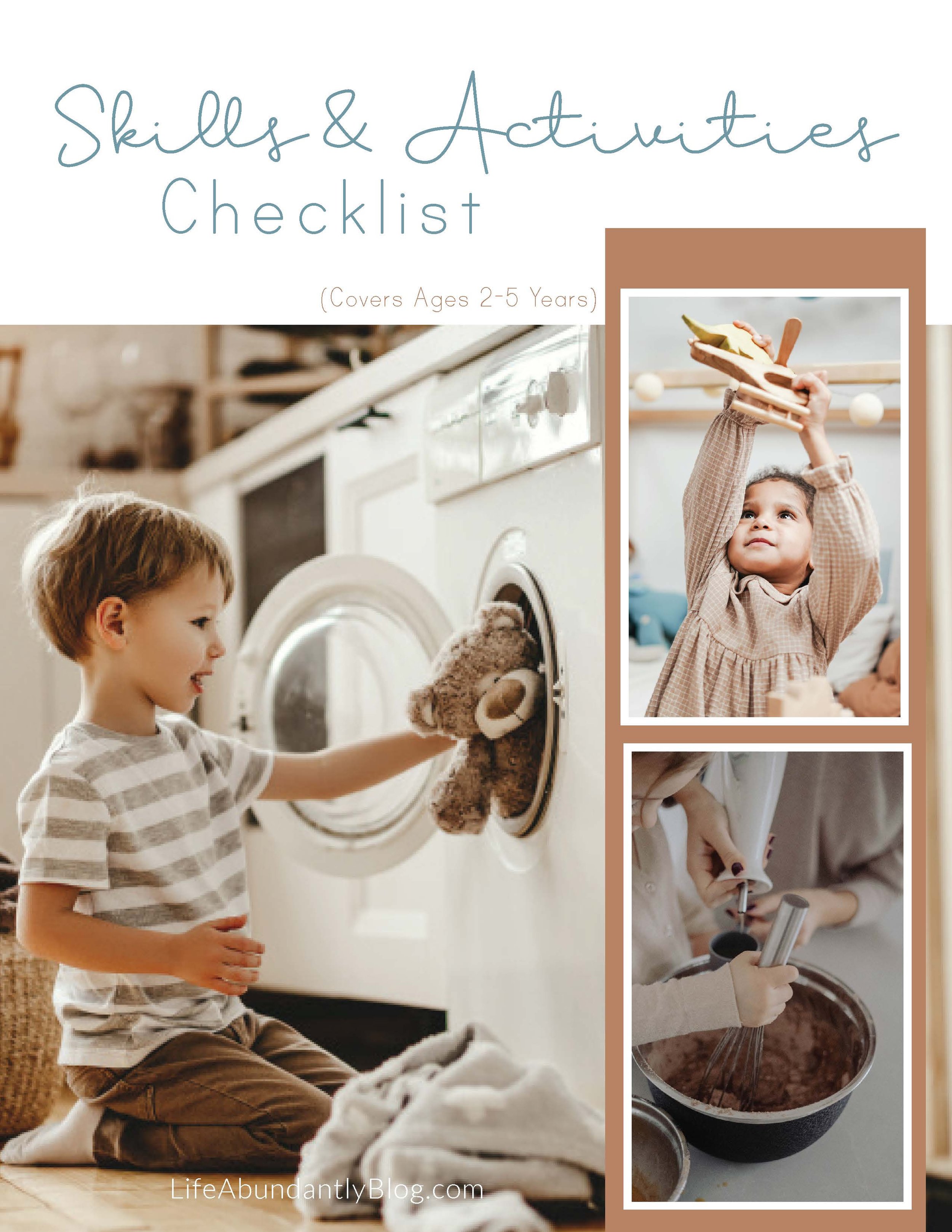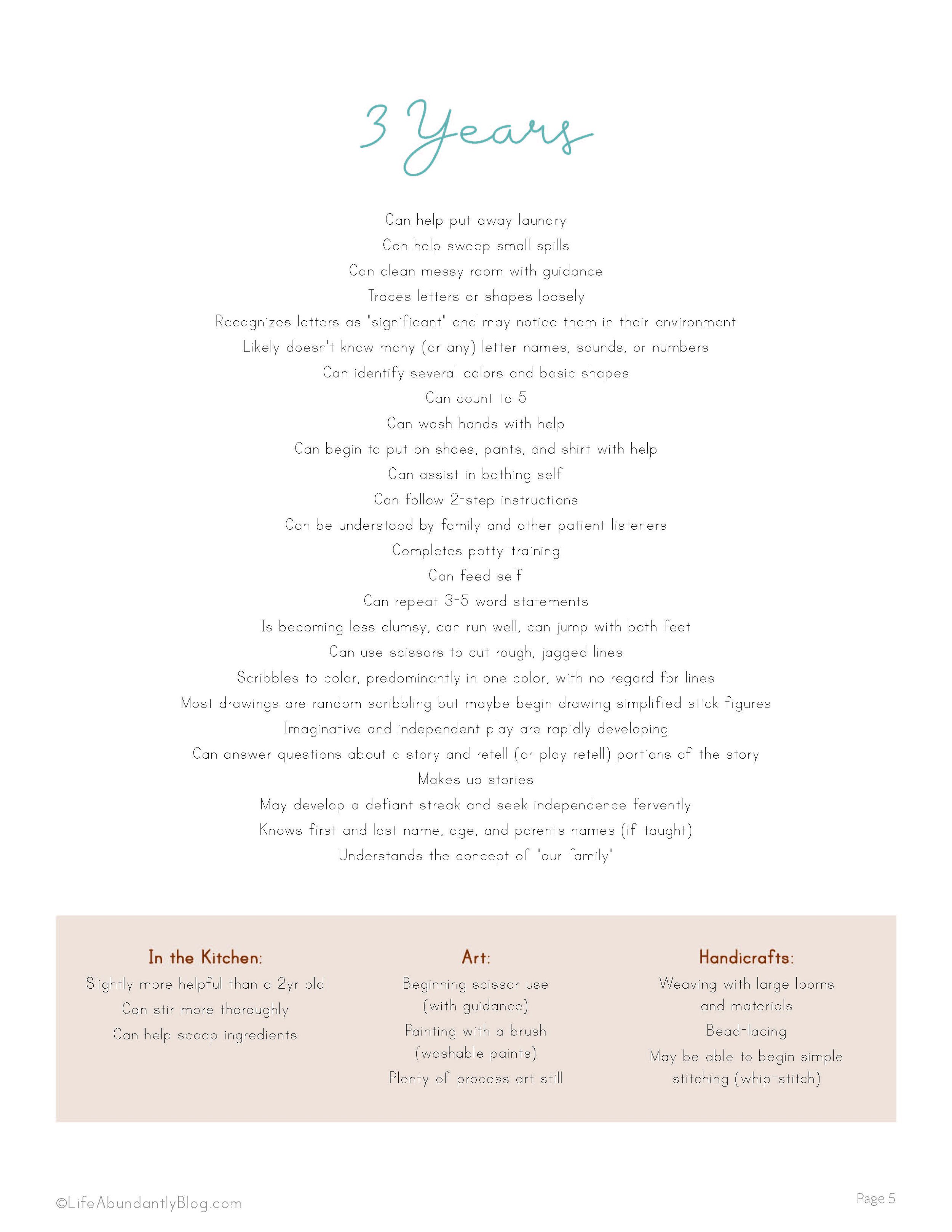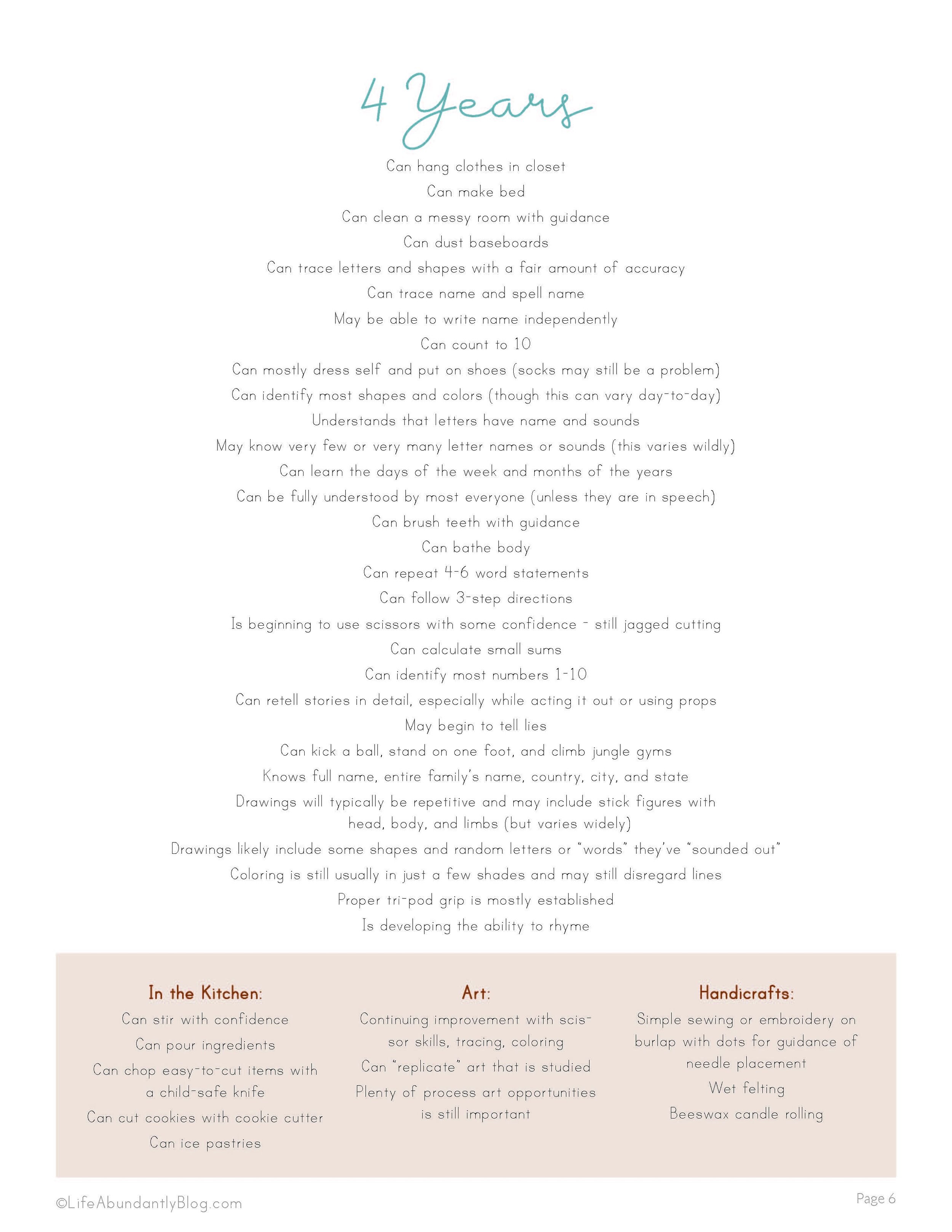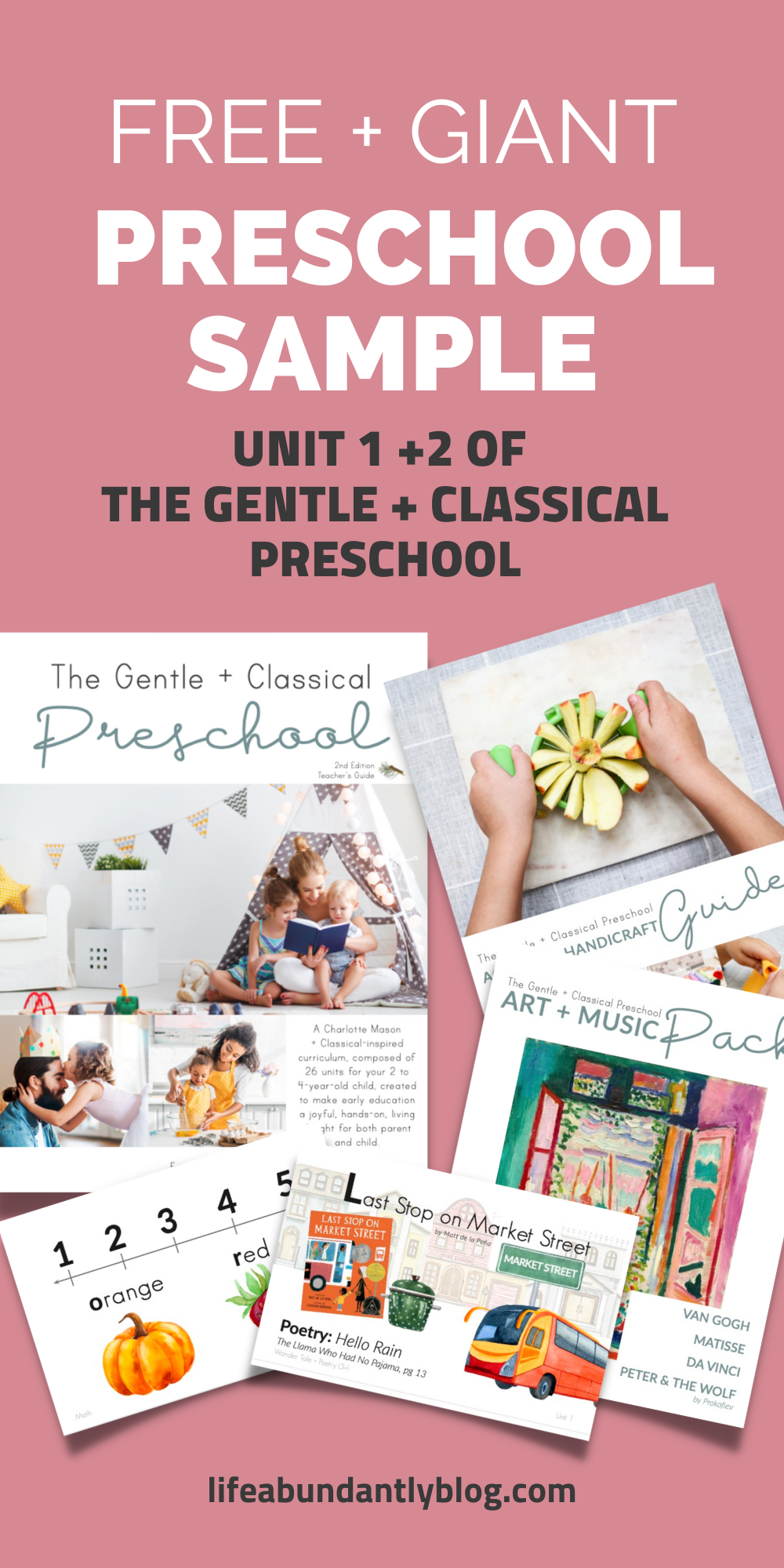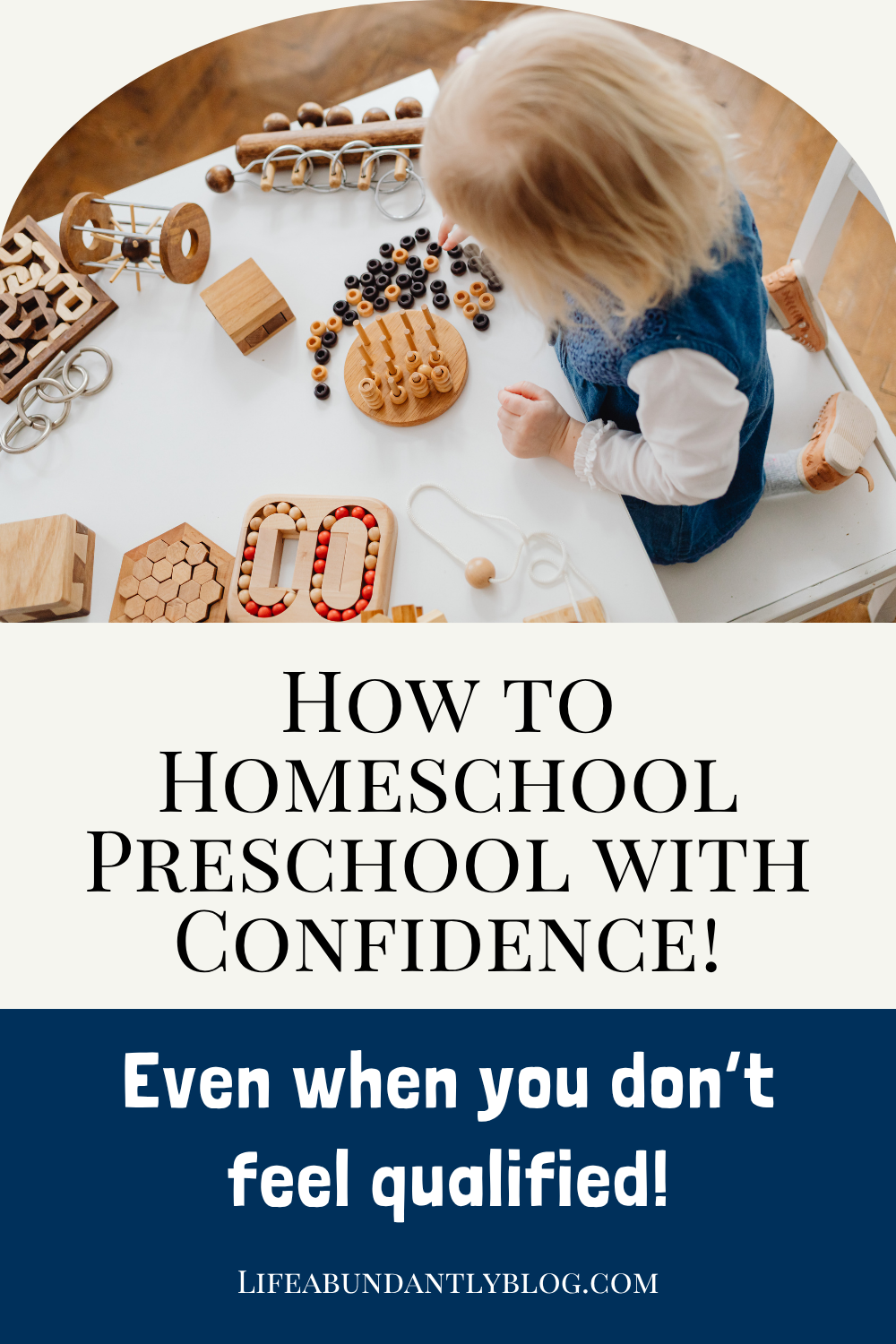What To Expect Of Your Two Year Old
/We often hear the question “what do I do with my toddler while we homeschool?” or even just a general “What do I do with my toddler?” Trust us, we get it - and it is an absolutely valid question. Of course, every family and situation is different, so all of the ideas we discuss today may not work for your family, but we long to help get the brainstorming wheels turning.
Check out a few ideas we have compiled below using our FREE list of Skills and Activities Checklist. We are hopeful this is helpful in creating a plan for your curious two-year-olds.
Before we begin, I want to share some wonderful advice I was given in the early years of motherhood. It was the simple encouragement to let go of perfection, especially in the area of “chores” or habits.
When my child helps, I want to focus on the fact that he or she helped and not focus on what he or she did incorrectly. (Trust me, this is tough sometimes!) This should leave a sense of accomplishment and pride in our children who will want to return to the chore with more joy than they might have if we focus on what they didn’t do.
Starting this practice for yourself while our children are young helps US build a foundation of encouraging our kids and teaching them each time how to improve upon a certain skill, habit around the house.
Folding Towels
Grab a laundry basket full of clean washcloths and have your child simply fold them into quarters. This is not only a practical life skill, but it’s so helpful! The first time (and maybe many subsequent times after) you do this with your child, tell him or her step by step how to fold the towel. An example of this would be: “lay the towel flat on the ground (or table), smooth it out, fold it in half, then fold it in half again. Now place it in a nice stack.” Once he or she has mastered the skill of small washcloths, graduate to dish or hand towels, then to bath towels.
Let your child do this at his or her own pace. Once he or she has found his or her rhythm, this could be done during a lesson with an older child or simply if you need a few minutes to get your head on straight. It could also be a task you do together - as you fold the family’s clothes, he or she can be in charge of the towels! What fun it is to work together
Hands-On “Handicrafts”
It can sometimes be difficult to think of some decent handicrafts for our younger children to do while we are conducting morning time or a lesson with our older children. There are actually quite a few options!
Playdough is a tried and true activity that teaches our children more than we realize. It’s great for fine motor skills, calming our children, encourages creativity, and even hand and eye coordination.
Stamps are another one of our family’s favorite. It provides many of the same benefits as playdough but is something fun and minimal that allows our children something to do, while the older children are trying to school. We love almost all the stamp sets from Melissa and Doug!
Gluing Projects If you have it and you can glue it, you can do this activity. This is an incredibly fun and time-consuming activity for our younger children. Beans, buttons, cut-up paper, nature items such as leaves and flowers (and so much more) are all great items to allow our children to glue to a piece of paper, or a piece of wood, etc. Of course, many times it can be a little nerve-wracking to let our children handle Elmer's glue, but allow yourself to set up a safe place where they can go to work with their little creative minds. This also helps with fine motor skills, creativity, hand/eye coordination, and more.
Lacing is a great activity to promote fine motor skills and hand/eye coordination. Many companies sell already made lacing activities and cards for younger children. You can also print an image, laminate it, and hole punch it to create your own lacing cards. Simply use yarn to weave through it. It may take some practice at first, but once they master it, this can be a great activity to distract our younger children with something educational and fun
Cooking
Sensory bins are often used to teach our children wonderful things (and even something we recommend), but if you’re like me and don’t have the will to make a sensory bin or the place to store one, the same skills and experiences can happen right in your kitchen.
Our two-year-olds can help with pouring ingredients into a bowl, assisting in stirring ingredients, and can help gather and carry certain ingredients as well. Include your children in “the ordinary” day-to-day cooking when it makes sense - this fosters not only gross and fine motor skills, and more but allows a time for togetherness and fun memories.
Walks
Don’t underestimate the value of a simple walk. Observation and conversations about the world around us have such an impact on the hearts and minds of our little ones. The movement is good for our children (and our younger children tend to learn a LOT while moving). It is also a great way to reset and return to your day. Set aside some time to walk the neighborhood or nearby trail and experience the world God created.
Skills + Activities Checklist
We have even more ideas in our free skills + activities checklist to help you brainstorm what might work best for your family!. Make sure to grab that by signing up below!
It's important to note that the skills by age in our quick overview are not comprehensive. We have pulled from a number of sources and filtered through a "been there, done that" perspective. If your child isn't meeting these skills quite yet, it most likely is not a cause for concern. If you are concerned, however, please see your pediatrician for an evaluation if you feel that is necessary. Do not allow the fear of "being behind" to ruin your peace and joy in early home education and parenting. We pray you ENJOY your child, right where he or she is.
If this will add more joy to your days, simply enter your email below to subscribe to our (infrequent) emails and also gain access to a library with over 45 FREE educational resources for your preschool and early elementary students/children!


